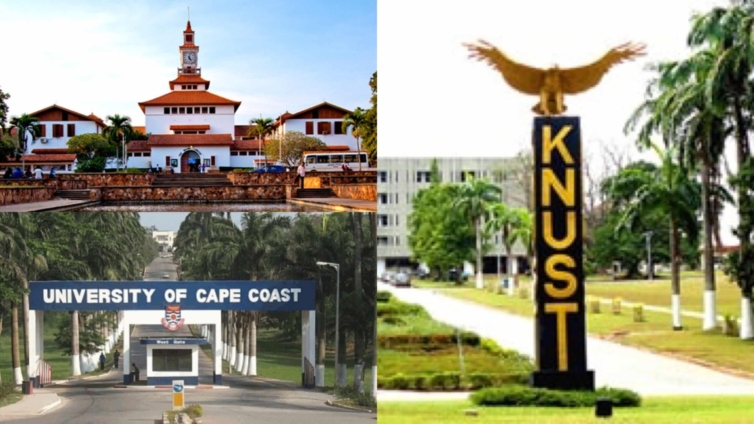Economist and Political Risk Analyst, Dr Theo Acheampong, has called on the National Democratic Congress (NDC) to reconsider its proposed 'no-fees policy for Level 100 students' should its flagbearer, John Dramani Mahama win the elections.
According to him, the policy should be a more targeted approach rather than a blanket implementation.
This comes after the NDC flagbearer John Mahama at the launch of the party’s Youth Manifesto on Monday said first-year tertiary students will not pay academic fees.
Related: Level 100 students won’t pay fees if I’m elected – Mahama
He said it would be part of a government initiative to lessen the burden on parents financing the cost of their children's education.
But speaking on Joy FM’s Newsfile, Dr Acheampong stressed the importance of focusing the policy on students who genuinely need financial support, rather than applying it universally.
Reflecting on his earlier criticism of the Free Senior High School (SHS) policy, Dr Acheampong highlighted the need for targeted interventions in education.
“Some of us actually wrote papers on this topic of Free SHS, emphasising the necessity to identify and support those who genuinely need access to educational facilities,” he said.
Dr Acheampong pointed out that the NDC’s proposal shares similarities with the Free SHS policy, which he believes was not optimally targeted.
He argued that a "politics of convenience" is at play, where broad, sweeping policies are favoured over more nuanced, need-based approaches.
“Some students are unable to honour their university admission for one reason or another. Why don’t we tailor this policy to this group of people instead of using a wholesale blanket approach of getting everyone into the school?” Dr Acheampong suggested.
He emphasised that a targeted approach would be more cost-effective for the government, enabling it to allocate resources more efficiently.
“If you go ahead with this blanket approach and pay for everyone, you will spend more money. But if you pay for those who genuinely need it, you would spend less and have money to save for other policies,” he explained.
Latest Stories
-
Musk turns on Republicans – and gives Trump’s big bill a harder path
28 minutes -
Putin will seek revenge for Ukraine drone attack, warns Trump
40 minutes -
Musk urges Americans to tell lawmakers to ‘kill the bill’
53 minutes -
Trump signs proclamation to restrict student visas at Harvard
1 hour -
US appellate judges skeptical of Trump birthright citizenship order
1 hour -
GCB Bank to launch special ‘Hajj Account’ as part of inclusive financial offerings
2 hours -
GH¢1 fuel levy eight times worse than scrapped E-Levy – Bawumia
2 hours -
Interior Ministry warns public against fake security services recruitment
3 hours -
Tanzania announces shutdown of X because of pornography
3 hours -
Education Minister condemns sexual harassment of female employees, calls for institutional reforms.
3 hours -
Court orders destruction of $350m cocaine intercepted in Ghana
3 hours -
Family of late PURC Board Chair pays courtesy call on President ahead of final funeral rites
3 hours -
Mechanising the cashew economy of Ghana to rake in more profits
3 hours -
Ronaldo fires Portugal into Nations League final with 2-1 win over Germany in Munich
3 hours -
Anass Sabit: Beyond Hajj – My spiritual journey in Mecca reveals Islam’s “lesser” pilgrimage, Umrah
3 hours

